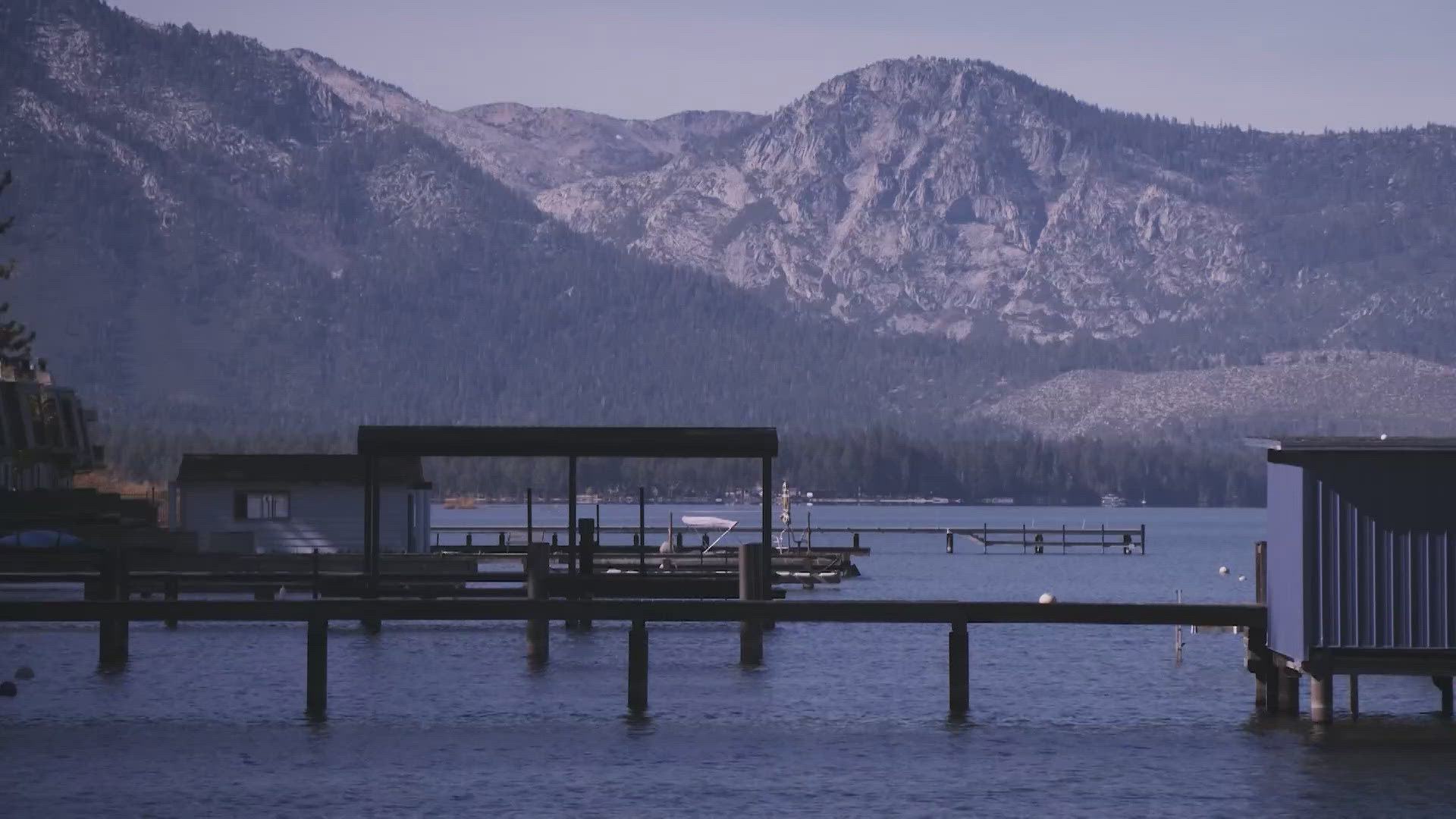SOUTH LAKE TAHOE, Calif. — Winter or summer, a resort city tucked into the Sierra Nevada is a go-to destination for many Northern Californians and even people outside the state.
South Lake Tahoe is also home to residents year-round and because the city relies heavily on tourism, when vacationers leave, it can create challenges for residents and businesses.
Jonathan Stein, the owner of Shedcat Distillery and Kitchen, expected a busy winter season this year, as is typical. So, he ramped up programming in anticipation, but by the time the winter holidays passed, he had to scale back because it's been "completely dead."
"Instead of huge peaks and valleys with the tourism industry here, if we could have more permanent residents, more local workers, everything elevates," Stein said.
Stein is in favor of a new initiative in South Lake Tahoe. It's created by people living in the area.

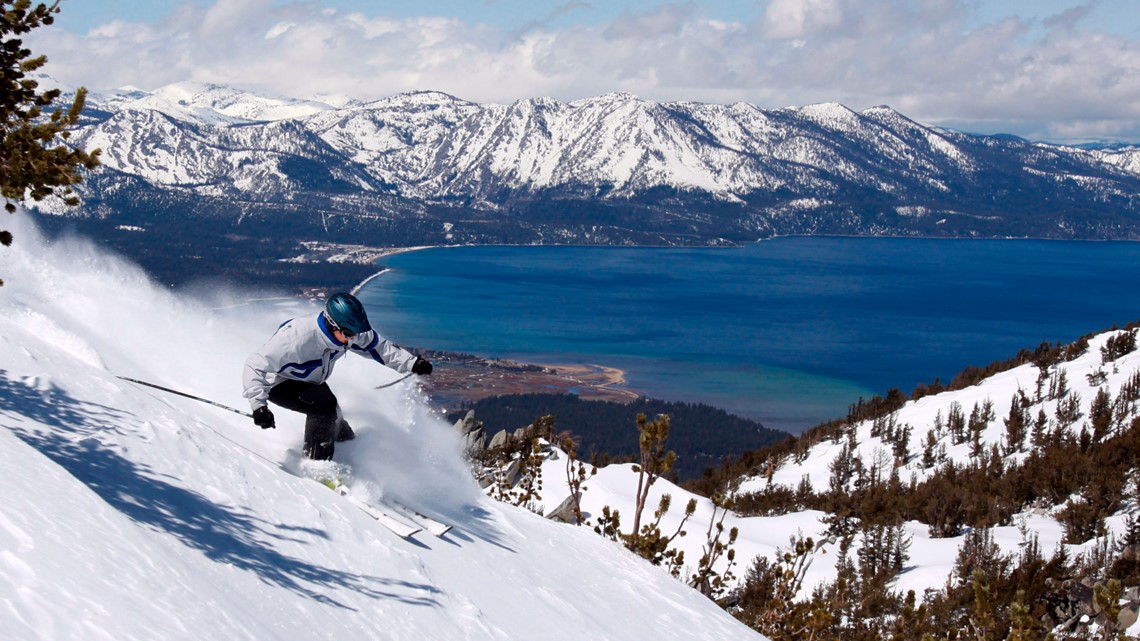
What's a vacancy tax?
Amelia Richmond is the co-founder of Locals for Affordable Housing, a group behind an initiative to get a vacancy tax on the November ballot. Owners of homes that are vacant for more than half of the year would pay a tax they could avoid if the home is occupied for six months out of the year.
The vacancy tax initiative is based on Berkeley's vacancy tax with similar rules and restrictions.
According to Richmond, if it makes it to the ballot and passes, owners would pay $3,000 the first year and then $6,000 the subsequent years if the home remains unoccupied for 50% of the year.
Owners of vacant homes could be exempt from paying this tax by renting to a local resident. There are other exceptions to the tax including properties under active renovation, in probate, and homes of people currently in a care home or long-term medical treatment.
"The occupancy does not need to be continuous. It can be at any point throughout the year by any occupant owner, house guest or renter. What's most important is that we have enough housing for our workforce, but also that we have people here contributing to the economy on a regular basis. So support it by going into businesses on a Tuesday and buying a coffee or buying groceries and paying our sales tax and supporting local businesses. We just can't sustain an economy with half of homes empty where people just aren't here on a regular basis," Richmond said.
Stein sees these struggles play out daily.
"Every day we have people walking in the door, asking for jobs and unfortunately no one is hiring," Stein said.
As a renter himself, Stein sees the impacts of the holiday seasons. He says it's unsustainable year-round.
"We're the first and only distillery in the entire Lake Tahoe basin, but I'm still nowhere near being able to afford a home in South Lake Tahoe," Stein said.
The issue isn't a one-and-done solution. The housing and job availability is something Stein says "all needs to change at the same time."
But not everyone agrees a vacancy tax in South Lake Tahoe is the right way to address some of the issues.

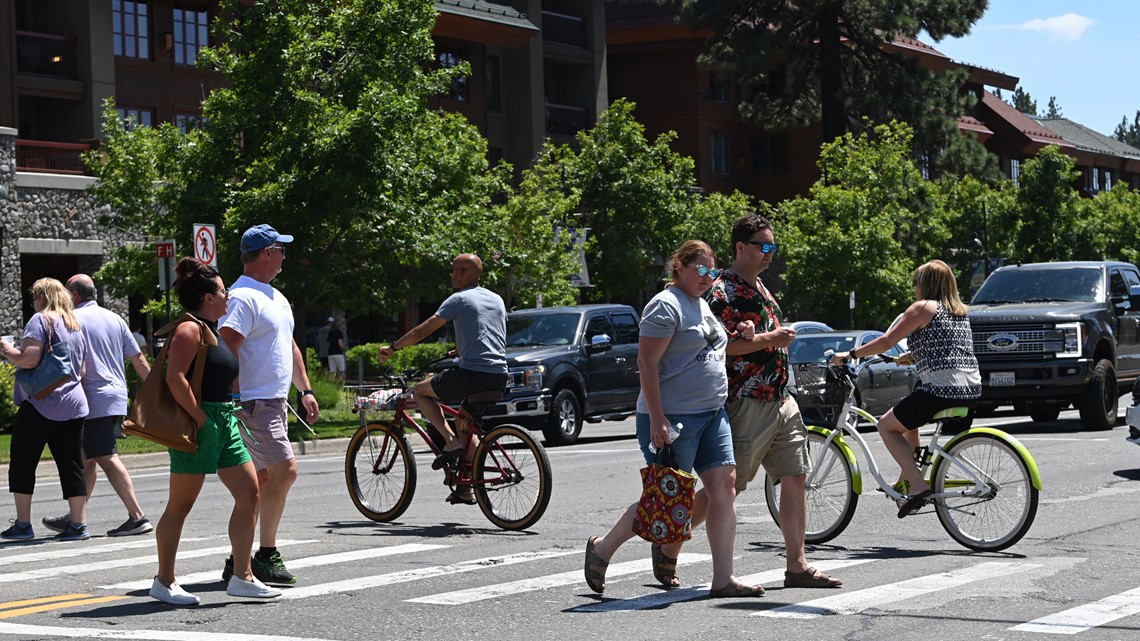
Jim Crouch lives in Phoenix, Arizona, and owns a second home in South Lake Tahoe. He doesn't agree with the vacancy tax initiative.
He and his wife purchased their two-bedroom, one-bathroom home in South Lake Tahoe in 2017 after years of visiting friends who lived in the area.
"I'm 66 1/2 and I'm still working full time in order to afford it, so not everybody who owns a second home in South Lake Tahoe is wealthy. It just doesn't work that way. It's just we're willing to sacrifice other things in order to have a house that we like to go to, especially when it's 115° in Phoenix and you go to South Lake Tahoe and it's 75° or 80°, so we spend a lot more time up there in the summer," Crouch said.
Although the vacancy tax would affect him if it made it to the ballot and passed, Crouch doesn't get a say in the final result.
"If they put this on the ballot, I can't vote against it. I'm not up there. I don't live there. I don't get to vote in South Lake Tahoe. So you're going to have something that may or may not pass that affects me because I'm a homeowner up there, but I don't get to vote on it," Crouch said.
The South Lake Tahoe City Council previously considered a vacancy tax, but the director of Development Services for South Lake Tahoe, Zach Thomas, said ultimately the city council voted not to pursue the tax and continued with other programs.
How is South Lake Tahoe addressing affordable housing?
As far as housing, the city of South Lake Tahoe is working to increase affordable housing as required by the state. Right now, there are several projects in the works, according to Zach Thomas.
Thomas said the city complies with the housing allocation needs, commonly referred to as RHNA (Regional Housing Needs Allocation) numbers. RHNA requires 289 units in South Lake Tahoe across various income categories including extremely low income, very low income, low income, moderate income and above moderate income.
Including an RHNA buffer of 15% brings it to 336 units, with South Lake Tahoe's 6th-round sites unit capacity total currently at 717.
"So how the requirement works, it's not that the city has to, or the local jurisdiction has to build those for every income level, but you have to plan for them. So you have to have land available, the zoning available," Thomas said.
According to a 2022 South Lake Tahoe Housing Element Update, there were 8,832 vacant units in South Lake Tahoe in 2017. More than 84% of those units were considered seasonal, recreational or occasional use.
Thomas said based on the South Lake Tahoe General Plan Annual Progress Report (January – December 2023), the California Department of Finance lists the city's housing vacancy rate at 42.8%.
"I will say it, it kind of hovers around half — that's a common number. It fluctuates. So do we have exact numbers? No, and that's a challenge I think with any data set, is people move in, they move out, they change the use of their homes. But South Lake Tahoe has always had a significant number of vacation homes, seasonal ownership and again, that number hovers around half," Thomas said.
The city has multiple projects in the works, one of them is Sugar Pine Village, a 248-unit affordable multifamily housing project.
Thomas said 128 units of the project are under construction with the first set to open in September. Thomas said the pre-waitlist already has more than 400 people on it.
The city is partnering with a developer to build another 75 units near the tourist core of South Lake Tahoe. It's in the early phases of financing, according to Thomas.
Several affordable housing options have people on a waitlist. Out of 344 units available across eight properties, 1,173 people are on a waitlist, according to South Lake Tahoe.
"We also have programs aimed at helping moderate income that's often kind of the most challenging and overlooked," Thomas said. "Sometimes a lot of the funding that's available is really geared towards lower income and building new kind of low-income housing that's affordable and the moderate-income housing is sometimes difficult to address."
South Lake Tahoe has an incentive program where homeowners can get a grant if they rent to moderate-income households. Another program provides deposit assistance to those who can afford the monthly rent, but struggle to get a deposit, according to Thomas.
"One of the biggest challenges to economic growth is the lack of workers and the direct correspondence with housing. So that's been a real kind of immediate push to say, OK, let's address economic development from that side. But there's also looking at other issues too, such as increased transit, improvements in mobility and things like that that help visitation, help visitors navigate the city and the area," Thomas said. "Obviously we're in a sensitive environmental area, so we want to protect that too, while also providing development opportunities not just for business, but for housing. So really always kind of looking at all those fronts and no one thing can be looked at in isolation or in a silo."

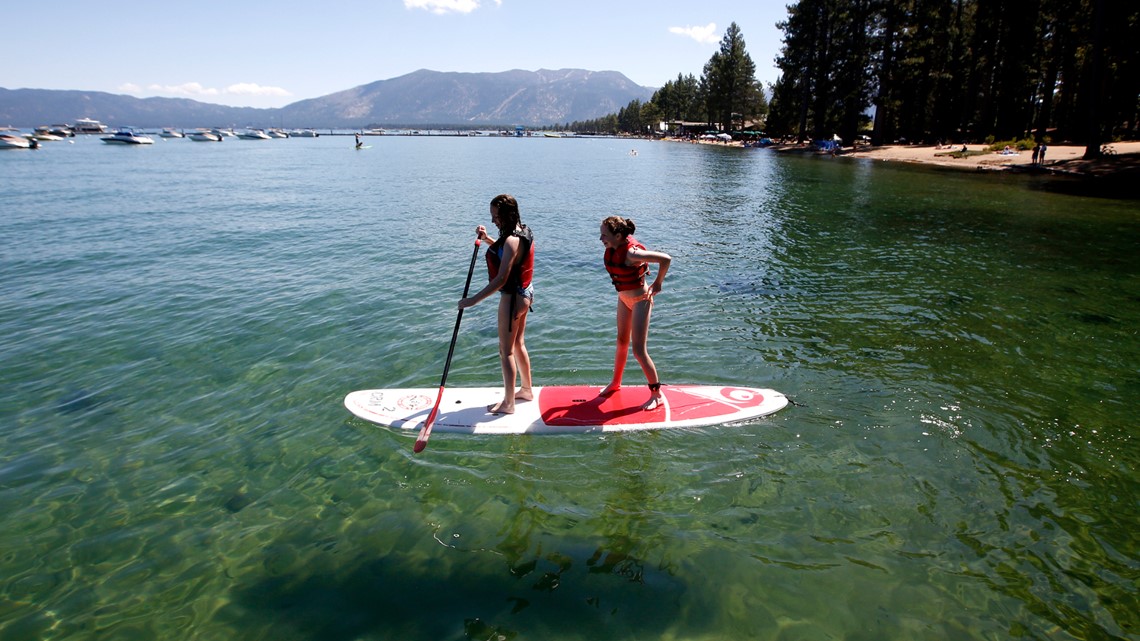
For more California coverage, stream ABC10+ on your TV for free:
► Roku - click here
► Amazon Fire - click here
► Apple TV - click here
Where does the vacancy tax initiative stand?
Richmond, the co-founder of Locals for Affordable Housing and one of the people behind the tax initiative, says their goal is to collect 1,500 signatures by April 10 to get the measure on the ballot.
As of March 29, they have more than 1,300 signatures and want to have a significant safety margin, according to Richmond. Those 1,300 signatures still need to be verified. Only voters registered in South Lake Tahoe can be counted if they sign the petition.
"We've got some really great volunteers and it's honestly been an honor to sit out in front of grocery stores and talk to members of our community and hear what people are going through. So, yeah, we're gonna be out there most days between now and then getting as many signatures as we can so that we can have more community discussion this summer and hopefully vote on this in November," Richmond said.
What about second homeowners?
As a destination city, South Lake Tahoe is a popular place for people to purchase a second home.
The owner of Shedcat Distillery, Jonathan Stein, said he always wants tourists there, but because it's the primary industry, it needs to be spread into other baskets.
"It's challenging to carry enough staff and volume to handle during the peak weekends," Stein said.
Thomas said there's a significant effort to balance visitation through the peaks and valleys and encourage tourists during the off-season.
"Some days we can be a town of 23,000 and that weekend you could be a town of 200,000 and so it's a constant challenge to balance the economic need for visitation, as well as making sure it's safe for the visitor and enjoyable and that they come back — but also the health and safety needs for the community and those living here full time and going to school and working," Thomas said.

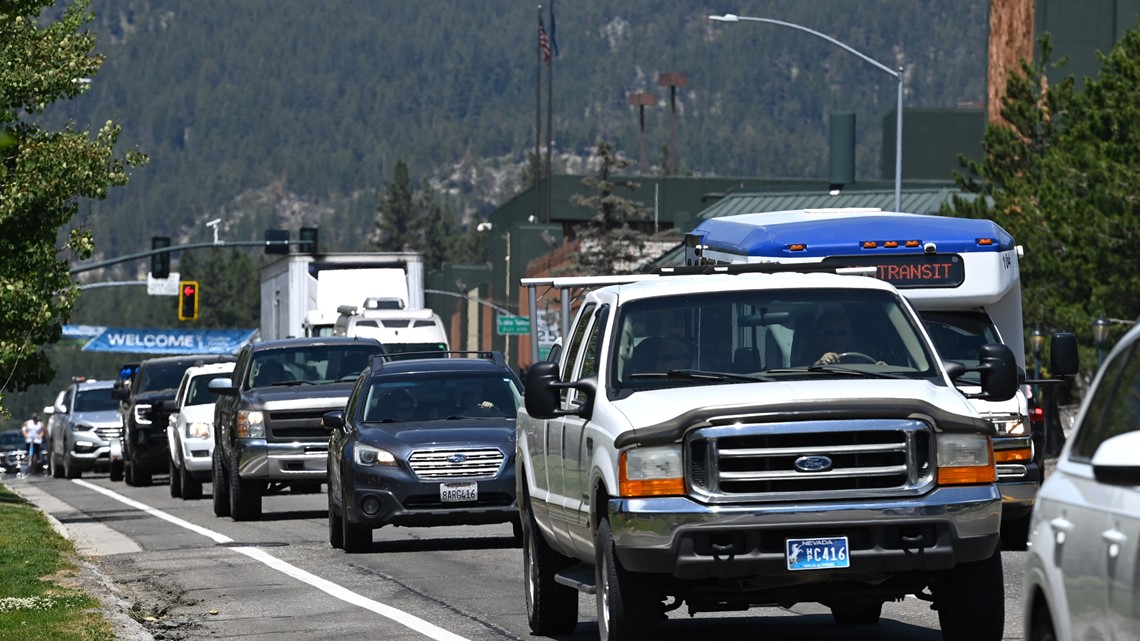
Crouch, who owns a second home in South Lake Tahoe, said he and his wife have kids and grandkids who use the house when they're not there.
"We probably approach somewhere around five months of the year where somebody's in the house. It doesn't sit vacant for 12 months, which I think is what people — when they think about a vacancy tax and talking about well, 'it's just sitting empty'. It doesn't. There's always somebody there almost every month of the year for a portion of that month. There's somebody in the house, it's not vacant," Crouch said.
Crouch said when he and his wife originally purchased the house they would rent it out short-term when they weren't using it and bought it with the idea of renting it out when they weren't there.
"We purchased it with the idea that, OK, we're going to spend our time up there, but then we'll rent it out. Unfortunately, after about a year, year and a half that option was taken away from us," Crouch said.
Measure T is a citizen-initiated ballot measure that amended regulations on vacation home rentals in South Lake Tahoe. It passed in November 2018 and went into effect in December 2018. It required VHR permits in residential areas and all multi-family properties to be phased out over three years. No new permits for VHRs in residential areas have been given out since the measure went into effect.
The measure doesn't impact current or future VHR permits in non-residential areas including the tourist core, commercial and recreation zones of South Lake Tahoe. Find more information about Measure T HERE.
"I want people to be able to have an affordable place to live. I'm not sure Tahoe is the place for affordable living is all I mean. I have a very small house up there that I paid almost double for on the house that I have that's three times as large here in Arizona," Crouch said.
Richmond says the vacancy tax is a way for people to contribute to the community so it can continue being an incredible place and it's not a punishment, but rather something to help solve the housing crisis.
"This happens in destination towns where not only do people want to own second homes there because it's a beautiful place to be, but also it's a great investment and your property value goes up every year. There is no reason not to have a second home as a business investment that you can also use as you see fit. The question is what happens to the community when nearly half of homes sit vacant?" Richmond said.
Find more on housing resources in South Lake Tahoe HERE.
Watch more on ABC10 | Vigil held for 4 people who died from ‘drug-related causes’ in South Lake Tahoe

